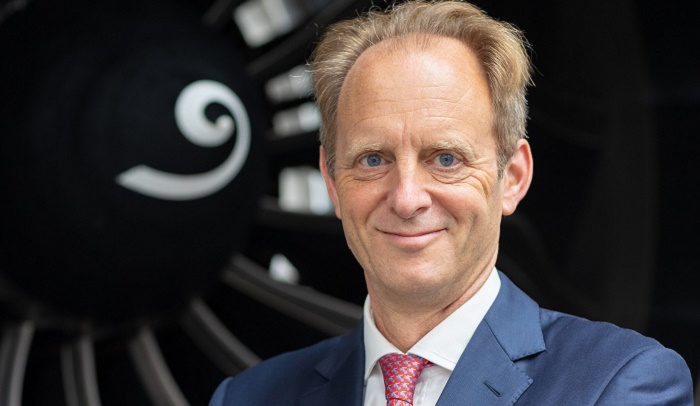
Muscat: SriLankan Airlines Chief Executive Officer Richard Nuttall said that it is the best time to visit Sri Lanka.
“There has never been a better time to visit (the country) as the hotels have low occupancy and the Sri Lankan currency is devalued. The government, SriLankan Airlines and all participants in the tourism industry are aligned and doing everything possible to support the return of tourism in the coming months,” he said, in an exclusive interview with the Times of Oman.
He also welcomed the government’s plans to privatise the airline. “I believe that it will offer greater opportunities for the organisation in terms of a much-needed capital infusion and the streamlining of decision-making,” he said.
Excerpts from the interview:
Q: I have heard that SriLankan Airlines made a profit this year. Is this true? How come this was possible?
A: SriLankan Airlines was profitable for the last four months of the year ending March 2021. We were also operationally profitable for the first six months of the current financial year starting April. However, given the high interest rates in Sri Lanka and the extra costs of operating for two months without jet fuel in our home base, we could not quite cover financing costs. These results are based on unaudited management accounts which are USD based. We went to great lengths to contain costs by restructuring aircraft leases, supplier contracts and other operating expenses during the pandemic. Consequently, we now have a relatively efficient cost base. Further, as traffic has restarted since the pandemic, we have been very agile in adjusting the network based on passenger demand and by distributing any spare capacity based on route profitability.
Q: What new routes are you planning?
A: Our priority right now is to restore capacity to match pre-COVID-19 levels in markets where we have a competitive edge. In the last year or so, we have restarted Paris and Frankfurt, and we launched Incheon and Sydney. We are always on the lookout for new market opportunities as the demand for commercial air travel steadily grows. However, our current priority is to increase frequencies on our current network which includes a number of countries where traffic levels are still recovering after COVID-19.
Q: Any plans to increase flights from Muscat? What is the load factor on this route?
A: We will most likely maintain the same flight frequency to Muscat through the winter of 2022 and into 2023. SriLankan’s passenger load factor on the Muscat route is just over 70 per cent this financial year, and we will not hesitate to increase capacity if the demand for the route increases.
Q: How are you handling the fuel shortage situation?
A: We faced some challenges as jet fuel was largely unavailable in Sri Lanka during July and August. However, the airline’s operational departments and suppliers came together and we were able to maintain most of our network by fuel tankering and tech stops to pick up fuel. Thus, maintaining Sri Lanka’s air links during the summer peak was an extraordinary achievement. Unfortunately, this came at a considerable cost at a time when we need funds to maintain and grow our fleet to meet the needs of the Sri Lankan economy. The good news is that the situation has eased since then, and the Ceylon Petroleum Corporation has assured us a steady supply of jet fuel. We are now able to operate our long-haul flights without any technical stops for refuelling.
Q: What are your thoughts on privatisation of SriLankan Airlines?
A: We welcome the Government’s plans to privatise the airline and believe that it will offer greater opportunities for the organisation in terms of a much-needed capital infusion and the streamlining of decision-making.
Q: How did the economic crisis hit SriLankan Airlines this year? And how is it planning to come out of it?
A: Sri Lanka is undergoing a severe financial crisis at the moment, but its impact on SriLankan Airlines has been minimal since the airline generates a vast majority of its sales in foreign currency from overseas territories. As the national airline, SriLankan is duty-bound to support Sri Lanka in this hour of need and we help by facilitating tourism and exports.
Q: Is the island of serendipity ready to welcome tourists despite what is happening inside Sri Lanka?
A: We believe that the country’s situation was overplayed in foreign media. There was a period for a few weeks when fuel shortages created uncertainty for travel, but otherwise the country has been completely safe for tourism. Now, whilst hotels still have low occupancy and the Sri Lankan currency has devalued, there has never been a better time to visit it. The Government, SriLankan Airlines and all participants in the Tourism industry are aligned and doing everything possible to support the return of tourism in the coming months.
Q: Did the airline restore all its pre- COVID routes?
A: We have resumed flights to almost all the destinations that we flew to pre-pandemic, and will be able to restore our capacity to 90 per cent of our pre-COVID-19 capacity levels in the next financial year.
Q: Flights to Indian cities are very important for Muscat-based passengers. Any plans to increase connectivity with Indian cities?
A: India is a key market for us with regard to inbound tourism to Sri Lanka and transit traffic via Colombo. We are planning to increase capacity to India as a priority in line with the growth in demand. Current demand is well below pre-pandemic levels, but we expect this to rebound in the coming months, with a considerable growth in the number of flights.
Q: Are you going ahead with new fleet procurement?
A: SriLankan Airlines needs to replace some of the older aircraft in its fleet that have imminent lease expirations. We are currently in discussions with our main stakeholder, the Government of Sri Lanka, which understands the need to agree on plans in this regard.